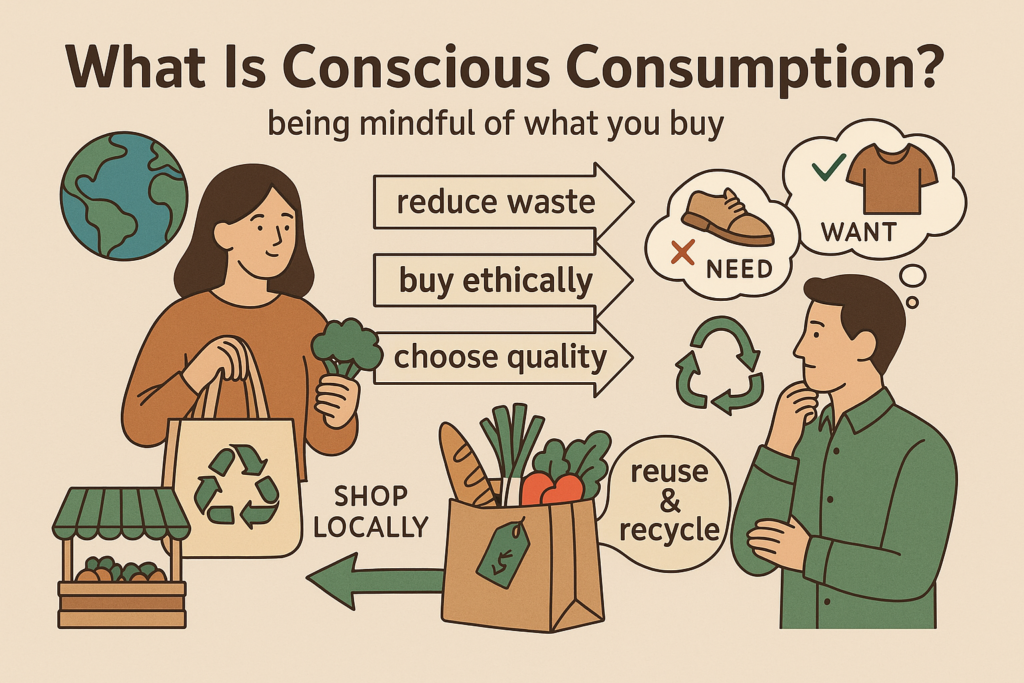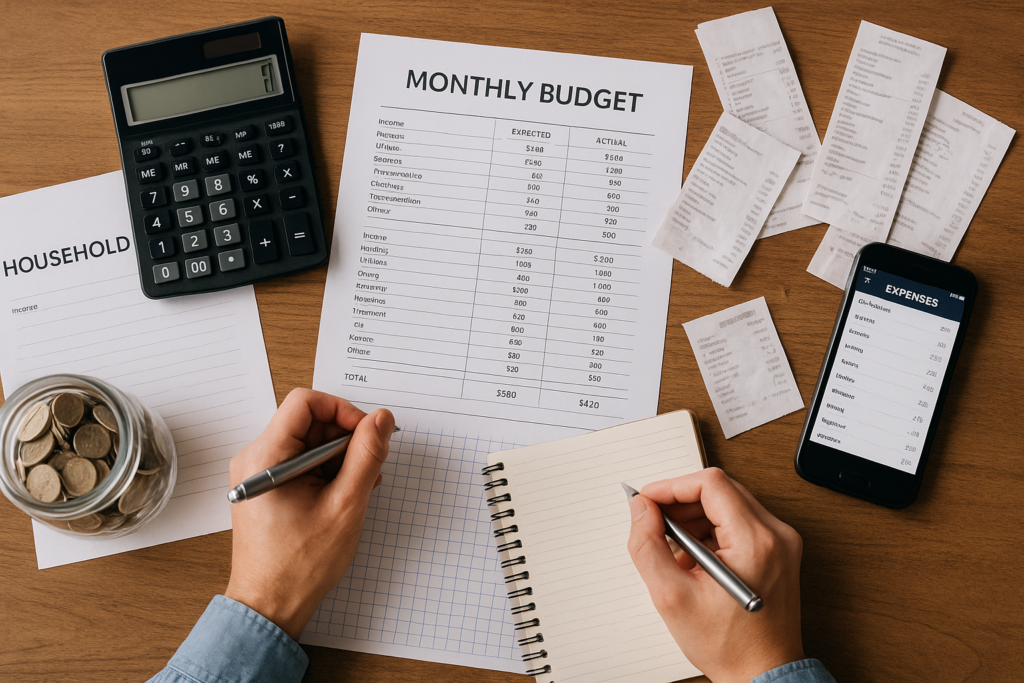
We live in a world where convenience often overshadows sustainability, and consumption is encouraged at every turn. Yet, many people are starting to question their habits and ask: What am I really supporting with my purchases? That’s where conscious consumption comes in.
More than just a trend, conscious consumption is a mindset and lifestyle that encourages thoughtful decision-making about what we buy, use, and discard. It has the power to transform not only your finances but your values, your impact on the planet, and even your peace of mind.
Understanding Conscious Consumption
At its core, conscious consumption means buying and using things with awareness of their environmental, social, and economic impact. It involves being informed, intentional, and responsible.
Conscious consumers ask:
- Where and how was this product made?
- Was it produced ethically?
- Is it sustainable or recyclable?
- Do I really need it?
- What happens to it when I’m done?
Rather than being driven by impulse or trends, a conscious consumer bases decisions on long-term value and ethics.
The Difference Between Conscious and Conventional Consumption
Let’s compare:
| Habit | Conventional Consumer | Conscious Consumer |
|---|---|---|
| Shopping Style | Impulsive | Thoughtful |
| Product Priority | Price and trend | Ethics and quality |
| End-of-Life Thinking | Discard and replace | Reuse or recycle |
| Awareness | Minimal | Deep and deliberate |
While the conventional approach often leads to overconsumption, waste, and buyer’s remorse, the conscious approach fosters intentional living and aligned values.
Benefits of Conscious Consumption
1. Saves You Money
It may sound surprising, but being more thoughtful about your purchases leads to:
- Fewer impulse buys
- Less wasted food and goods
- Smarter investments in quality products that last longer
Over time, these savings can be substantial—and help reduce credit card debt or build your savings.
2. Reduces Waste
Conscious consumers think about the entire life cycle of a product. This helps reduce:
- Landfill waste
- Single-use plastics
- Food waste and packaging overload
By choosing reusable, durable, and repairable items, your environmental footprint becomes significantly smaller.
3. Aligns Spending with Values
Every purchase you make is a vote—for the kind of world you want to support. Conscious consumption ensures that:
- Workers are treated fairly
- Animals are not harmed unnecessarily
- Natural resources are respected
- Local and ethical businesses are supported
This alignment creates a deeper sense of integrity and purpose in your daily life.
4. Encourages Simplicity
As you become more aware of what you consume, you start to value:
- Fewer, better things
- Clearer spaces
- More time and less stress
This simplified lifestyle, often inspired by minimalism, leads to better focus, emotional clarity, and even stronger relationships.
Everyday Examples of Conscious Consumption
You don’t have to change your whole life overnight. Here are simple examples of how to practice conscious consumption today:
- Bring your own bags, bottles, and containers when shopping
- Buy local produce instead of imported ones with large carbon footprints
- Choose products with eco-friendly packaging
- Support small or local businesses
- Borrow or rent items instead of buying new (books, tools, clothes)
- Repair or repurpose old items instead of replacing them
Common Misconceptions
“It’s expensive to live consciously.”
Not necessarily. Conscious consumption encourages buying less and buying smart. Over time, this approach is far more economical.
“It’s too complicated.”
You don’t need to be perfect. The goal isn’t zero impact—it’s reduced impact. Even one small change, like switching to reusable coffee cups, makes a difference.
“I’m just one person. What can I do?”
Every movement starts with individuals. The more people shift toward conscious consumption, the more pressure there is on brands and industries to change.
How to Start Your Journey Toward Conscious Consumption
- Reflect on your current habits: What do you buy often? What goes to waste?
- Educate yourself: Learn about supply chains, sustainability, and ethical brands.
- Start small: Change one habit at a time—like switching to natural cleaning products or eating one vegetarian meal per week.
- Get others involved: Talk to friends and family. Share tips and resources.
- Track your impact: Keep a journal of changes and how they affect your life, budget, and mindset.
Conscious Living Is Empowered Living
Conscious consumption is not about guilt—it’s about power and intention. It’s about taking back control in a world that profits from impulse and convenience. By consuming less and thinking more, you can live a life that is more ethical, affordable, sustainable, and fulfilling.
Whether you’re just beginning or deepening your practice, remember: every decision counts. Your values, your choices, and your voice matter.
